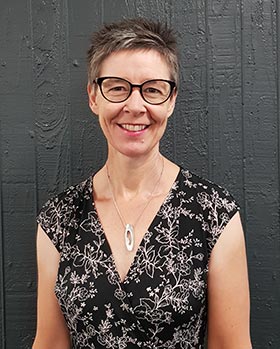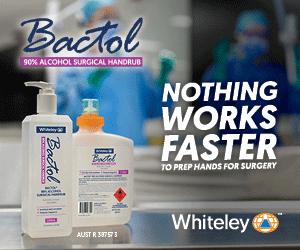 Nursing in Aotearoa is considered a profession, characterised by a set of responsibilities and accountabilities that we sign up to when we make our annual declaration to the Nursing Council as competent to practise. Each of the four domains of competence a registered or enrolled nurse is required to meet are related to the professional practice of nursing: professional responsibility, management or provision of nursing care, interpersonal relationships, and interprofessional health care and quality improvement.1, 2
Nursing in Aotearoa is considered a profession, characterised by a set of responsibilities and accountabilities that we sign up to when we make our annual declaration to the Nursing Council as competent to practise. Each of the four domains of competence a registered or enrolled nurse is required to meet are related to the professional practice of nursing: professional responsibility, management or provision of nursing care, interpersonal relationships, and interprofessional health care and quality improvement.1, 2
Being a member of a profession requires us to behave in a way that upholds the values and education of that profession. Being professional means we behave as a professional: we take responsibility for our own learning and development; we act as a role model for others; we support the provision of services that improve or protect health; we base our practice on the best available evidence; and we lead professionally by connecting with and supporting our professional bodies and organisations, supporting those who lead our profession, taking time to develop ourselves to lead strategically and developing others to lead strategically.3
Being professional does not preclude us from being political. In fact, being political is a key element of being a member of a profession. In the case of nursing, every time we advocate for a patient, whānau or community to receive care, we are behaving politically. We do this nearly every single day in our work – and though we may not see this as political, it is.
To do this well, we need to be “politically savvy”. There are five simple actions we can take to build the political savvy required to drive our professional agenda and advocate for patients, communities and populations, whether at the individual level or through exercising our right to vote.
Own your message and use the active voice when speaking. Simply saying: ‘I think we should do this for the following reasons . . . ‘ is very powerful.
First, we need to know who to talk to when advocating for care, or for our profession, by identifying who will be able to influence and make the change you need. This is called “standing on the balcony”.4
Second, we need to have “presence” to get our message across. Having presence is a way of carrying yourself – sending signals that you are an authority.4, 5 Again, we do this every day by knowing what our patient, community or population group need, and backing that up with clear evidence and rationale.
Third, we need to be “authentic”. This is about being open, honest, trustworthy and having good intentions. Step back, read the environment, ask people questions, see where they sit on an issue, and then build your case, advocate your views or state your recommendations. You are in a position of strength if you hear others out first and then, based on their concerns, advocate your views.
Fourth, be empathetic and connected. Be attentive to others and adapt your language to your audience. Ask insightful questions, give the big picture, avoid irrelevant details, listen attentively and give others credit where it is due.
Finally, have clarity. This means being decisive in the way you say things and get to your point. It’s the ability to explain your views in a way that makes others want to join your proposed course of action. Own your message and use the active voice when speaking. Simply saying: “I think we should do this for the following reasons…” is very powerful.
Being politically savvy is a tool we can use to promote our professional agenda, whether advocating for better patient care, supporting your professional organisation, getting in behind your leaders or by exercising your right to vote.
NZNO recently held a by-election for a new president, vice-president and three board directors. Only 6.32 per cent of members voted. This does not demonstrate either professional support for the organisation that represents you or political savvy in identifying who can advocate for change on your behalf.
We have a professional responsibility to engage in the political because this is how we will achieve change. With the national election coming up, I hope all of you will use some political savvy to get engaged and vote.
NB. This editorial draws on a presentation I made at the NZNO conference in 2019.
Jill Clendon, RN, PhD, is the associate director of nursing and operations manager for ambulatory care at the Nelson Marlborough District Health Board. She is also an adjunct professor and teaching fellow at Victoria University of Wellington.
References
- Nursing Council of New Zealand. (2007). Competencies for registered nurses. Wellington: Author.
- Nursing Council of New Zealand. (2012). Competencies for enrolled nurses. Wellington: Author.
- Nursing and Midwifery Council (UK). (2016). Enabling professionalism (PDF, 408KB).
- Dale, M. (2018). 5 steps to becoming politically savvy.
- Leslie, J. B., & Gentry, W. A. (2015). Women and Political Savvy: How to Build and Embrace a Fundamental Leadership Skill (PDF, 248KB). Greensboro, North Carolina: Center for Creative Leadership.




